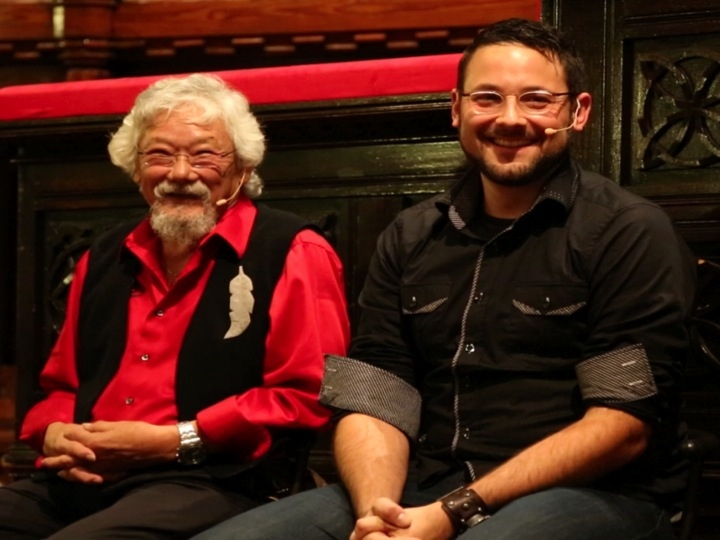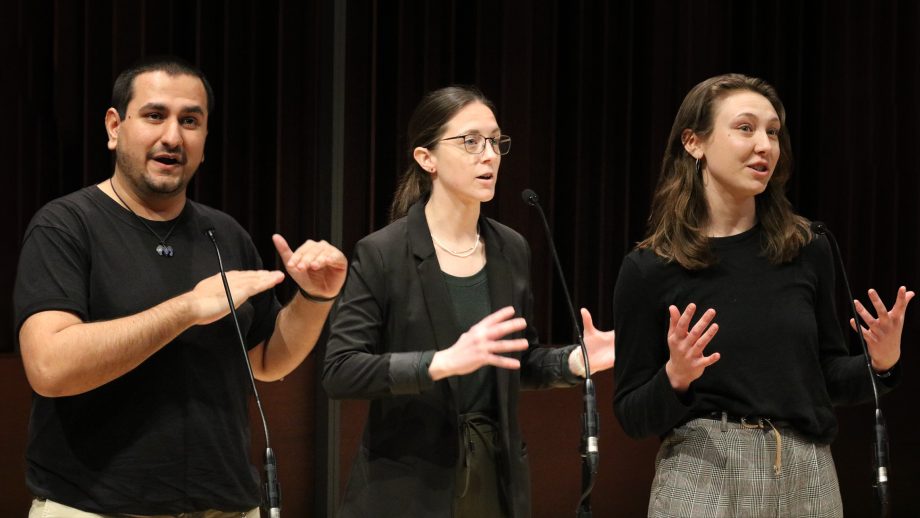Dr. Ian Mauro is strengthening his collaborative ties with environmental activist and educator David Suzuki in his latest filmmaking effort, which focuses on the impact of climate change along the Pacific Coast. He begins his tour of communities in coastal British Columbia with Suzuki on June 1.
For Mauro, who was raised in Winnipeg and returned to join UWinnipeg’s Department of Geography as an Associate Professor, the film-in-progress completes a trilogy on how Canada’s coastal regions are changing due to climate change. In 2010 he co-directed Qapirangajuq: Inuit Knowledge and Climate Change with acclaimed Inuk filmmaker Zacharias Kunuk (Atanarjuat: The Fast Runner), and in 2012 he completed Climate Change in Atlantic Canada, which he and Suzuki shared with audiences on tour across Canada the following year.
Mauro has prepared a draft version of the Pacific-themed film, which includes more than 50 interviews shot in the region last summer, to screen during the upcoming tour. He says feedback he receives from members of the coastal communities will play an integral role in shaping the final version.
“We call this a listening tour,” explains Mauro. “This is participatory filmmaking at its core. My process involves seeking direct input from communities about their knowledge, concerns and priorities, and this is the second crack at engaging communities in what’s already been developed to ensure it reflects their point of view.”
While the film is set in BC, Mauro points out that there are national implications for issues related to climate change in that province.
“This is a critical region in the national discourse around energy in our country,” Mauro says. “While the film addresses climate change impacts on communities, it also explores ongoing and proposed energy development in Western Canada — oilsands, fracking, pipelines and supertankers — and may help inform Canada’s energy future and the effects this will have on people, culture and environments.”
Mauro expects the final version of the film, which has been supported by a $2.5 million Social Sciences and Humanities Research Council (SSHRC) partnership grant as well as funding from The David Suzuki Foundation, to be ready for a premiere in Winnipeg this fall. The launch will be timely as global leaders gear up for the 2015 United Nations Climate Change Conference, taking place in Paris in December.
MEDIA CONTACT
Megan Benedictson, Communications Officer, The University of Winnipeg
P: 204.988.7129, E: me.benedictson@uwinnipeg.ca





